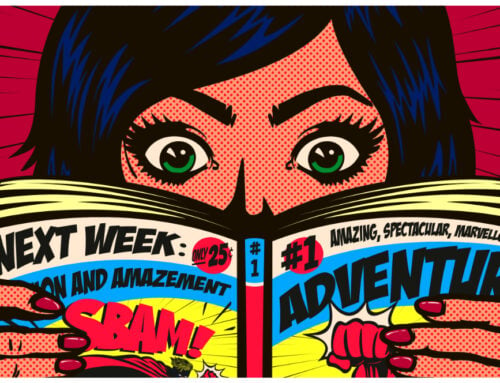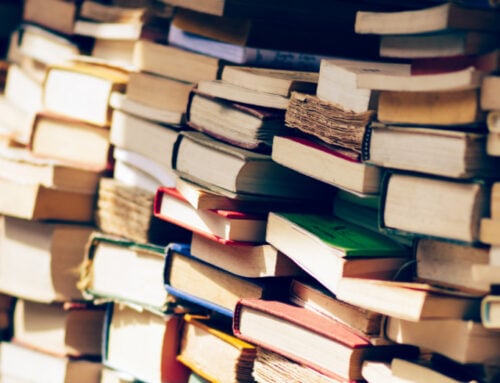Arabic literature, a tapestry woven with vivid colors, deep patterns, and rich textures, reflects the diverse tapestry of the Arab world. This ancient and nuanced literary tradition, sometimes overlooked in the Western literary canon, has been gradually but steadily finding its place in the English-speaking realm through the art of translation. Join us on a journey as we delve into the profound significance of Arabic literature, the intricacies of translation, and how these captivating works have the power to enhance and broaden the global reading experience.
Significance of Arabic Literature
 Arabic literature predates the Quran, and its heritage includes the rich Islamic Golden Age where Arabic scholars made remarkable advances in the fields of science, philosophy, and literature. This era not only translated ancient Greek texts but also broadened the scope of Arabic literature, creating a legacy that endures till date.
Arabic literature predates the Quran, and its heritage includes the rich Islamic Golden Age where Arabic scholars made remarkable advances in the fields of science, philosophy, and literature. This era not only translated ancient Greek texts but also broadened the scope of Arabic literature, creating a legacy that endures till date.
Influence on World Literature
Modern Arabic literature has its bedrock in this heritage, merging classical traditions with contemporary storytelling. It has introduced themes, forms, and styles that have made a significant impact on world literature. Writers like Naguib Mahfouz and Ghassan Kanafani have become household names among the ranks of Nobel laureates and critical darlings, their works inspiring and touching readers globally.
Benefits of a Literary Translation
Translation of Arabic literature presents a two-way window, allowing the Arab world a glimpse into Western culture and vice versa. This exchange is invaluable for fostering understanding and mutual respect in a world that is progressively interconnected. It also gives readers an opportunity to explore different perspectives and experiences, thereby broadening their horizons.
Preserving Cultural Heritage
Translation also plays a crucial role in preserving Arabic literature and culture. Many ancient works exist only in Arabic, and translation ensures that they are not lost to time. By making these works accessible to a wider audience, the rich heritage of the Arab world is not only preserved, but it also offers a chance to appreciate and learn from it.
Diversity in Reading Choices
The introduction of translated Arabic texts into the international market increases the diversity of reading choices available to audiences. It not only enriches bookshelves with voices from a different cultural paradigm but also serves as a bridge, connecting readers from disparate backgrounds through shared human experiences.
Challenges of Translation
Arabic, with its numerous dialects and intricate literary forms, poses a unique challenge to translators. The language’s beautiful complexity often defies direct conversion, necessitating skillful adaptation to preserve the original intent and flavor in a new linguistic context.
Contextual Preservation
Preserving the context and spirit of Arabic literature is paramount in translation. There’s a delicate balance to be struck between transposing cultural references to make them accessible without diluting the story’s essence to accommodate unfamiliar readers.
Impact on Readers
For those unfamiliar with the Arab world, translated Arabic literature offers a new lens through which to view life, society, and the human condition. These books often present different perspectives, fostering empathy and understanding.
Enriching the Reading Experience
Arabic literature, even when translated, retains a distinctive voice that can add a new and fascinating dimension to the reading experience. The act of reading a translated work can feel like engaging in a literary voyage, often bringing the reader closer to the essence of the story.
Promoting Global Literary Citizenship
The translation of Arabic literature into English and other languages promotes a sense of global literary citizenship. It underscores the importance of cultural solidarity and the shared value of storytelling. This global perspective invites readers to participate in a larger, more inclusive conversation about humanity and its myriad expressions. By engaging with these translations, readers become part of a community that transcends geopolitical boundaries, recognizing the commonalities that unite us across cultures.
The Role of Translators
Translators play a crucial role in this cultural exchange, often working in the shadows to bring these stories to light. Their work requires not only a deep understanding of language but also an empathy towards the cultural nuances and historical context of the original works. Without their diligent efforts, many of these literary treasures would remain locked within the confines of their original language, inaccessible to a global audience. As readers, acknowledging and celebrating the work of translators is essential for appreciating the full spectrum of world literature.
A Deeper Dive
If you’re looking to jump into the world of books translated from Arabic to English, here are a few compelling starting points:
A Funny Thing Happened at the Museum
- Davide Cali and Benjamin Chaud
The Madwoman of Serrano
- Dina Salústio
- Translated: Jethro Soutar
Marta
- Eliza Orzeszkowa
- Translated: Anna Gąsiencia Byrcyn and Stephanie Kraft
The Locust and the Bird
- Hanan al-Shaykh
The Open Door
- Latifa Al-Zayyat
- Translated: Marilyn Booth
Turning the Page in Arabic Literature
 The translation of Arabic books into English is not just a trend; it’s a crucial step in building a more inclusive literary universe. There is untold magic waiting to be discovered within the pages of these translated tomes, and it falls to us as readers to seek them out and enjoy the world of storytelling that Arabic literature has to offer.
The translation of Arabic books into English is not just a trend; it’s a crucial step in building a more inclusive literary universe. There is untold magic waiting to be discovered within the pages of these translated tomes, and it falls to us as readers to seek them out and enjoy the world of storytelling that Arabic literature has to offer.
To anyone interested in broadening their literary horizons, exploring the wealth of books translated from Arabic is an excellent place to start. Each page turned is a step taken towards global understanding, and each story read is a connection formed across cultures. It’s time to immerse ourselves in the amazing world of Arabic literature, one translation at a time.
Literary Translation at Cleveland, OH at Clevo Books
Dive into the rich tapestry of Arabic literature without leaving Cleveland! At Clevo Books, we’re thrilled to offer an extensive collection of books translated from Arabic to English. Whether you’re a seasoned aficionado of Arabic literature or eager to discover a new literary world, our shelves are brimming with stories that promise to transport, enlighten, and inspire. Call us (216) 354-5354 or visit our website or check out our online store– your next favorite book is waiting to be discovered!

We would love to hear from you! If you have any questions or comments, please feel free to contact us.
530 Euclid Ave #45a Downtown Cleveland, OH 44115






